|
Understandably you've asked quite a few questions about boosting immunity over the past few months. It's always a valid topic, not just in light of COVID-19.
Immunity covers many physiological processes and can be affected by genetics, nutritional status and lifestyle habits. As such we are going to address immunity in small easily digestible chunks, starting with sleep and what to do if you aren’t getting enough. Sleep is a powerful immunity elixir. Many Australians do not get enough sleep. Sufficient Sleep (7 - 9 hours per day for adults 18+ and much more for the young uns. See below.) Sleep
Sleep allows your busy and potentially anxious mind to take a well needed break. It helps to reduce stress and anxiety. It regulates hormones, appetite and energy levels. Prolonged sleep deficiency (e.g., short sleep duration, sleep disturbance) can lead to chronic, systemic low-grade inflammation and is associated with various diseases that have an inflammatory component, like diabetes, atherosclerosis, and neuro-degeneration. A lack of sleep can exacerbates stress, anxiety and depression. If you are having trouble falling asleep, you could try... - reducing/ stopping caffeine - implementing a sleep hygiene routine and - making sure you are getting enough exercise to make you physically tired The vitamins, minerals and amino acids required to produce the sleep hormone melatonin from serotonin are Tryptophan Magnesium Calcium and Vitamin B6. All are available in a healthy whole food diet but if you are experiencing long term sleep issues however minor, you can also take supplements of tryptophan, magnesium, Calcium and B6. Magnesium is also available as epsom salts for a long soak in the bath. Melatonin is also available as a supplement. There is a wide variety of supplements available online at the natural chemist including practitioner only sleep formulas. HOW MUCH SLEEP IS ENOUGH SLEEP? Newborns (0-3 months): 14-17 hours each day Infants (4-11 months): 12-15 hours Toddlers (1-2 years): 11-14 hours Pre-schoolers (3-5): 10-13 hours School age (6-13): 9-11 hours Teenagers (14-17): 8-10 hours Younger adults (18-25): 7-9 hours Adults (26-64): 7-9 hours Older adults (65+): 7-8 hours NOT GETTING ENOUGH? You are not alone. Inadequate sleep is a regular problem for 40% of all Australians. HERE’S WHY YOU NEED IT! 🧠 Cerebral spinal fluid is pumped more quickly throughout the brain while you sleep. It acts like a dishwasher, whisking away waste products that brain cells make. So you wake up with, quite literally, a clean slate. ❤️ One body part that gets a break during sleep is your heart. Your ticker works hard during the day, so at night during non-REM sleep it takes some pressure off itself by reducing heart rate, as well as blood pressure. ☺️ When you’re awake, your breathing patterns vary greatly. You’ll breathe faster when excited and harder while exercising, for example. But during sleep, your breathing slows down and becomes very regular. 💪 While you sleep, your body releases growth hormones that work to rebuild muscles and joints. The more sleep you get, the better equipped your body will be to repair itself. Stomach Certain foods contain an amino acid called tryptophan that causes sleepiness. Carbohydrates containing B vitamins and magnesium make tryptophan more available to the brain, which is why carbohydrate-heavy meals can make you drowsy and also why carbs with your evening meal can help you sleep. In summary you can eat the best diet and follow an exercise plan like a pro, BUT if you are not getting enough sleep, your immunity can still be compromised. #sleep #immunity #pharmacist #communitycare #boostyourimmunity #magnesium #tryptophan #melotonin #VitaminB6
0 Comments
There are currently 2 divergent camps, providing advice on whether the general public should or should not wear masks in the times of COVID-19. I have done a review of the literature on the pros and cons of wearing face masks and present you with a summary so you can make up your own mind. (Information correct as at 7 April 2020 - there are rumours of a WHO review on Friday but I can't see anything on their website and it is Good Friday so I am sceptical.) The current World Health Organisation (WHO) expert panel’s advice is for healthcare workers caring for COVID-19 patients to wear respirators in the first instance and if these are not available, medical masks. For home carers and those in contact with COVID-19 patients, masks are recommended. Healthy people are not being told to wear masks BUT with the high number of asymptomatic and pre-symptomatic people in the community, the case is not open and shut. Additionally, many countries’ Centres for Disease Control have started recommendING the wearing of masks when out in public and social distancing may be difficult. Countries include but are not limited to China, Italy and the US. REASONS TO wear a face mask. When humans SPEAK, streams of droplets enter the air and can travel up to 2 metres (hence the 2 metre rule in most countries but only 1.5metre rule in Australia.) When humans LAUGH, COUGH, SNEEZE, SHOUT, BREATHE HEAVILY whilst exercising, droplets can travel up to 6 metres. Face masks are widely used by medical workers as part of droplet precautions when caring for patients with respiratory infections. The WHO and All agencies recommend that symptomatic persons or those who come into contact with symptomatic persons and the elderly and the vulnerable wear masks when in public ...if supplies permit. Given the rate of asymptomatic/ presymptomatic infection in the community may be as high as 25%, wearing a mask could protect others from the respiratory droplets of those who are unknowingly infected and slow community transmission. REASONS NOT TO wear a face mask. - Some authorities are concerned about the shortage of PPE including masks for vulnerable frontline medical and essential services personnel so discourage the use of surgical and medical masks. - Some people do not know how to fit, wear and manage their masks properly. For example, masks must be removed and discarded or if cotton, washed before re-use. Hands must be washed with soap and water for 20 seconds or hand sanitiser after masks have been removed and dealt with. - Authorities are concerned that wearing a mask incorrectly might make people touch their faces more regularly. - Authorities are worried that the wearing of masks might make people complacent about WHAT TO DO? 1. Stay at home when you can. 2. Practise frequent hand hygiene, washing with soap and water for 20 seconds or a professionally made hand sanitiser. 3. Practise correct respiratory etiquette. 4. Observe social distancing rules and keep 1.5m away from others at all times (especially when exercising - you might not have it but the person you are passing might.) 5. Wear a mask if you suspect you are infected and must go out. 6. Wear a mask if you are vulnerable, elderly or immunocompromised and must go out. 7. Wear a mask if you are caring for an infected person. 8. Regularly clean all surfaces with professionally made sanitising sprays. #COVIDcare #facemasks #PPE This Red Papaya and Sweet potato soup is super easy and oh so tasty. This is one of the recipes I created for Rubyrise Papaya using their delicious papaya. It is a very yummy soup...if I don't say so myself. Visit the Ruby Rise website for more of my and others' yummy papaya recipes. Oh and please like the facebook post so that they ask me to write more recipes, because I LOVE writing recipes for them. 🥰 You can also find the recipe here on my website, link is at the bottom of the page. A single serve, 150g of Red Papaya provides 150% of your recommended daily intake (RDI) of Vitamin C, 33% of Vitamin A RDI, 18% Folate RDI and 12% fibre RDI. Eaten raw, red papaya will provide more Vitamin C and Folate, which are both water soluble vitamins which are reduced in volume with cooking and freezing. Paired with oil or fat, (olive oil, avocado, nuts, seeds, dairy) red papaya will provide more Vitamin E, K and A (Lycopene, β-cryptoxanthin and β-carotene) all of which are fat soluble vitamins and require fat for absorption. Crushed and cooked but not fried, red papaya will provide more Lycopene as the cells are broken to release the compounds which makes them more bioavailable. ANTIOXIDANT, anti inflammatory, immunomodulatory, antiulcerogenic, Antimicrobial (antiviral, antifungal antibacterial, antiamoebic, antiparasitic, antihelminthic and antimalarial actions), antiplatelet aggregation, anticancer, antimutagenic, antitumoral, antiproliferative, antihypertensive, antihyperlipidemic, hypoglycemic and hypolipidemic ...so eat up. Follow this link for the red Papaya and Sweet Potato soup recipe and more of mine. #recipe #redpapaya #learntocook Eat like your immunity depends on it..Needless to say, taking care of yourselves during this COVID crisis, is incredibly important. I know a lot of people will be under increased stress due to reduced working hours (oh yes the irony!) reduced income, juggling small children, caring for sick loved ones and trying to work from home etc.
On a personal note, 4 weeks before our second daughter was born, September 11 brought the airline industry to its knees and with it my husband's job. It was a tough time for many, with a lot of companies and therefore lively hoods affected. The point is, as tough as it was, the support of friends and family and a decent dose of self care saw us through. Sleep and stress management were a daily priority. ...and yes my husband is back in the airline industry. Oops! Sleep - is vital for immunity so try to get 8 hours a night and if you are having trouble sleeping, set up good sleep hygiene and perhaps take some magnesium. Stress management - the stress hormone cortisol decreases immunity and messes with hormones in general. To help decrease stress
Vegetarian? No problem. Just replace the chicken with 1 cup of dried, soaked lentil/ legume soup mix or 3 cans of choice.This soup is also packed with Antimicrobials - thyme, onion, garlic and leek. Antimicrobials help defend your body against invading pathogens, so eat plenty of these... This soup is full of fibre, both soluble and insoluble which provide nutrition for your good gut bugs. There are also a few standout nutrients required for immunity and these include Vitamin A, C, D and Zinc.
As a nutritionist, I do not usually recommend supplements as the first line in immunity. I think food is always the best source of nutrients. However for anyone who is looking for a fast track route right now, immune-compromised or is in close contact with people who may be sick, I think now is as good a time as any to take supplements for immunity and ANY health condition you've been putting on the back burner. Immune supplements include the following Vitamin A and C - fresh fruit and vegetables, canned tomatoes etc Vitamin D - especially if you know you are deficient Zinc - especially if you know you are deficient - (general low immunity - you often pick up colds, poor skin health, slow wound healing) Bioflavinoids - anti-oxidants & anti-inflammatory compounds (fresh fruit and veegtables) Probiotics - specific to immunity Iron - especially if you know you are deficient Additionally there are some lovely immune complex supplements containing
Stay happy and healthy. Lou :) Dry July is a catalyst for change for many people...
It's empowering to discover that you can actually cope incredibly well without the daily glass or 4. I know that drinking in moderation can be enormously difficult for many people. In fact, the latest evidence suggests that women in their 40s and 50s are hitting it harder than is beneficial for their health and more so than any other demographic. As Aussies, we are a fairly consistent bunch, we drink to celebrate, we drink to commiserate, we pop bubbles and beers to toast newly weds, end of the working week, end of a golf game, end of a tough day with the kids, to relax after a stressful day in the office, to escape the cold war with your partner or just to escape reality in general. It's all seemingly pretty thirsty work. Some people can ALWAYS stop at 2 and never have a problem with hangovers or post party paranoia, some have no "off switch" at all and beat themselves up mercilessly for dancing on tables or oversharing other people's intimate secrets. One too many broken tables can finally trigger the desire for change. Many toy with reductionism for years, finally realising that complete abstinence is the only way for them. There's nothing wrong with alcohol in moderation but in excess it damages cells, tissues and organs - think skin and liver, detoxification pathways, hormonal balance, mood and resilience - think tolerance with kids and family, sleep, memory and immunity. Excess alcohol causes inflammation and can increase the risk of many conditions such as Heart or Liver disease, alzheimers and dementia, neuropathy and almost all cancers including breast, colorectal and prostate. So Dry July, Feb Fast, NOvember all offer an opportunity to create a circuit breaker. Reducing alcohol could be done anytime really. it just seems to be easier for people when not drinking is more readily understood and accepted by friends and colleagues. There's simply not as much peer pressure and there's usually at least one friend abstaining with you. To this end, and to make those boycotting booze feel even better, we are focusing on the mighty dietary Combatants of Inflammation this month. You can increase your self love with foods that pack a hefty healing punch. Some powerful anti-inflammatory agents include antioxidants, omega 3 fatty acids and fibre. Anti-oxidants are mostly found in vegetables, legumes and fruit, but also occur in colourful whole grains, nuts and seeds, oily fish and to a lesser extent grass fed meat and dairy. To increase the anti-inflammatory power of your daily diet, eat more:
Foods to avoid will vary form person to person. For instance if you do not have an inflammatory condition, you can probably tolerate gluten and dairy, but if you suffer from an auto-immune disease or inflammatory condition it might be worth omitting under the supervision of a Nutritionist or Naturopath. Inflammatory/ Acidic foods to limit or avoid (see above)
Anti-oxidants help to neutralise and expel call damaging free radicals from the body, preventing oxidation and fighting inflammation which in turn lowers the risk of inflammatory conditions. Inflammatory conditions include Premature ageing, Auto-Immune Disease, Gout, Oedema, Headaches, Macular degeneration Hearing Loss, Alzheimers, Arthritis, Cancer, Diabetes, Excess weight or Obesity, Heart Disease, CVD, Metabolic syndrome, Allergies, Tendonitis, Digestive issues etc. If you would like anti-inflammatory dietary advice, please book in for an appointment or phone or e-mail for a free 10 minute phone call to see if I might be the right practitioner for you. There are a lot of resources to help you decide if your alcohol is on the high side and I will put together a resource sheet but for now, here are 3 resources. Helpguide Smartphone App - Daybreak (peer support) Dry July - oh and I am raising money for cancer research this year. Even $5 can help. OK, you really deserve that anti-oxidant rich purple bread recipe now, so here it is! ...of course there's a story behind the name. It's not really compost... When our kids were little, we spent a lot of time between Nanna and Grandad's and our own home as my parents helped out with the care of our kids when we were working. Mum often sent a meal home with the girls in the evening. One night she sent home a tupperware container of chicken soup. The container was the exact same, as the one we used for our kitchen compost scraps. Our youngest daughter therefore was perplexed as to why Nanna was sending her compost back to our house. And the name stuck. I love this soup, which is more like a casserole really. It's nourishing and warm and delicious and comforting. Chicken soup has been dubbed the Jewish penicillin. There are papers and scientific studies on its merits, ranging from the benefits of the steam one inhales when ingesting it to the salt found in the soup serving as an oral saline wash. Apparently this reduces the swelling in the nose and throat, soothes irritations in these areas, and restores easy breathing. Goodbye cold & flu tablets, hello chicken soup. It's literally full to the brim with vitamins, minerals, antioxidants & cysteine which are in the delicious veggies, herbs, garlic, chicken and bone broth. Pistou is traditionally used as a flavour enhancer in soups. Pistou has had a long history. The Roman poet Virgil described a sauce made by crushing herbs in a mortar with garlic, salt and olive oil. Over time, the sauce morphed into the heady Gevonese pesto, which then morphed into pistou in Nice. And then I had a go. This pistou is rustic and simple and goes beautifully with slow cooked dishes like Osso Bucco and Lamb Shanks. It's anti-micorbial and immune boosting. Click here for the Chicken soup recipe. Enjoy. Heart warming goodness of BrassicaesOkonomiyaki is a traditional Japanese pancake typical to western Japan, including Nara, where I lived for a year (many years ago) and loosely translates to “how you like it cooked.” It is generally cooked on a teppan or BBQ grill and is a very versatile dish. It can be vegetarian but does feature bonito flakes and is often topped with prawns or shaved pork. It's a fabulous mid week meal or can be dressed up for entertaining. Nutritionally, it's a powerful dish, with lots of nutrient dense cabbage. Cabbage is a member of the cruciferous brassicae family. It is a group of uber nutrient rich vegetables that packs way above its weight in powerful phytonutrients. Cruciferous vegetables contain several nutrients that have a whole host of beneficial effects in the body, including anti-inflammatory, antioxidant, antibacterial, antifungal, neuroprotective, hypoglycemic, and lipid-lowering effects. And this translates into some pretty remarkable results, especially in terms of cancer and heart disease prevention. Cabbage is high in fibre, rich in vitamins C, E and K and folate and selenium. It also contains important compounds called glucosinolates (GSLs). GSLs produce active chemo-protective metabolites that actually rid the body of toxins before they can cause damage to cells. GSL metabolites are also involved in DNA and RNA signalling, helping to prevent detrimental cellular coding that might lead to cancer. GSL metabolites prevent tumors from growing. They are chemo-preventative and chemo-protective. But wait there's more....Cruciferous vegetables bind with bile acids to excrete them and the fats they carry from the body. To replace the lost bile acids, the body must use cholesterol stores, which helps lower cholesterol levels. The cruciferous family includes cabbages, broccoli, cauliflower, broccoflower, brussel sprouts, choy sum, bok choy, Gai Lan, Tatsoi, kale, watercress, mizuna, rocket, radish, turnips, swede, horseradish and mustard seeds. So how much do you need to eat to reap the benefits? 5 serves per week show benefits in the research. One serve is half a cup of vegetables or 1 cup of loose leaf greens. If you suffer from thyroid disease, it is best to cook your brassicaes as they contain goitrogens. If you are on warfarin, consult your health practitioner before over-indulging. Okonomiyaki is one of the dishes featuring in our Vegetarian class coming up in June. I've also attached the recipe link here. Mums gifted with a cooking class this week will receive a special Mother's day edition Jar of Rosewater and Pomegranate Muesli. For Details and Bookings for the Seafood Class click here and for details and bookings for the Vegetarian Class click here.
Health meets sustainability in this controversial global diet transformation put forward by the EAT- Lancet commission. They have been tasked with creating 1 global healthy sustainable diet to save our bodies and the planet.
This is a fascinating paper, combining health and sustainability goals to create a global "sustainable healthy diet". We will not all agree, but it's early days and an interesting discussion point. We need to keep in mind that the point of this paper (and commission) is to find a GLOBAL diet that will adequately nourish 20 billion people by 2050 (That's a whole other discussion right there.) Solutions are required and our global food system needs to be fixed before it's too late. In summary; + we need to reduce food waste by 50% + a lot of us could eat less, but some of us need access to food to eat more + you can never eat too many vegetables, the average global human needs to + increase their plant based protein intake (enormously) and + decrease their meat, dairy and egg consumption (this point will cause the most controversy on both dietary and sustainability levels. But interestingly it's the overconsumption of lower quality grain fed, meats that cause some of the biggest dietary risks and environmental degradation.) There is recognition of the need for animals in agriculture to maintain soil integrity. Risks of not adopting the new global diet + Increased diet related diseases (cancer, heart disease, obesity, diabetes etc) and malnutrition (overfed/ undernourished and underfed/ undernourished) + increase in green house gases, leading to accelerated climate change + habitat loss to make space for more agricultural land. Controversy will ensue for sure. This paper addresses UN Sustainable development goals which seek to end poverty, protect the planet, ensure prosperity for all and eradicate hunger and malnourishment on a global level (They are pretty BIG goals). Most people reading this article have the money to buy the food they choose to eat and may be confused by the perceived high level of grain (especially Paleo peeps) and low levels of meat, fish and dairy in the Healthy Reference diet. Keep in mind that this is a global diet, aimed to feed all AND protect our environment whilst supporting 20 billion people in 2050. There are a lot of questions, why palm (habitat destruction) and soya bean (very high in inflammatory omega 6 fatty acids) oil over heart healthy olive oil and other omega 3 fatty acids. Why so few eggs and so much chicken? There is so much to question and yet this commission is full of intelligent world leaders. Fingers crossed it gets an upgrade. If you'd like to read more, here is the full article, with some highlighting. Lou x I hope you've had, or indeed are still having a lovely holiday.
At the very least, a break from the usual routine seems to help the mind relax and regenerate (I am of course referring to post Christmas mania). We've not ventured far from home this year and so have had a lovely quiet start to 2019. We saw in the New Year with friends in Bateau Bay, which resulted in the happy birth of a new swim club... 365swims, mainly to encourage us make the most of where we live. You can check out our daggy posts on instagram and read the story in the first NYE instagram post on 365swims. The swimming is not a New Year's resolution but it will give us a purpose and add a sense of fun to 2019. Food and nutrition wise, I think 2019 is going to be an interesting one. The GUT received much media coverage last year and as the evidence increases, linking the health of our microbiota to almost every body system, treatment protocols will remain firmly focused on supporting the gut to help banish bad bugs, improve intestinal cell integrity and encourage the growth of friendly bacteria to improve our emotional and physical wellbeing. Food trends will follow suit with the spotlight on the health of our intestines and micro-biome with prebiotic and probiotic superfoods already overflowing from shelves. Environment and ethics will continue to play a larger role in food choices with plant based proteins, tech foods (such as faux meats), insects and block chain traceability up front and centre. Hemp and CBD infused foods are bountiful overseas and with hemp legalised in Australia for human consumption in November 2017, we are likely to see many permeations in the snack and functional food ranges. Diets such as Paleo, and high fat are still trending, with a new kid on the block...Pegan (that would be Paleo Vegan.) Here at Nourishing Nosh, our focus, will remain as our tagline suggests, on delicious, nutritious, conscious eating of fresh, seasonal whole foods, with body and earth in mind. I'm not really into labels BUT to help you understand me a little more I have always considered myself a flexitarian. I eat pretty much everything as long as I consider it sustainable. All veggies, fruit, legumes, seeds, nuts, grains, organic chicken and eggs, sustainable seafood, kangaroo, goat and very small amounts of free range grass fed meat. This is about to change...but more about that next time... For now, enjoy our lovely sunshine and come and join me in the kitchen and at my table for a delicious cooking experience. January classes. xx Lou 😀 We all need more veggies in our lives. Sick of hearing it from me? Let’s see what the experts have to say… “Eating loads of fruit and vegetables - 10 portions a day - may give us longer lives, say researchers. The study, by Imperial College London, calculated such eating habits could prevent 7.8 million premature deaths each year.”The recent UK research trial compared health outcomes of those who ate 200g veggies/ day (½ daily recommendation) with those who ate 800g/ day (twice daily recommendation.) The results were significant. Eating a large amount of Vegetables and fruit increases your fibre intake which is a huge determinant of the health of your gut microbiota (micro-organisms living in your intestines). A healthy microbiota has been linked with improved immunity, better mental health, healthier weight outcomes and a decrease in inflammatory diseases such as type 2 diabetes, overweight and obesity. Consuming a variety of different vegetables exposes us to a wider range of nutrients in the form of vitamins, minerals and phytochemicals, all of which play a role in important physiological functions in your body. These substances include cancer preventing glucosinolates, detoxifying indole 3 carbinoles, and polyphenols from brassicae veggies such as broccoli and cabbage, antimicrobial, anti fungal properties of garlic and onions, antioxidant properties of beta carotene from carrots and pumpkins, and antimutagenic properties of folate in leafy greens. The list goes on and on and on! Vegetable consumption reduces cholesterol levels and blood pressure and boosts the health of our blood vessels and immune system. Vegetable consumption helps you stay lean. Vegetables are possibly the only food group that does not attract controversy. Everyone agrees that veggies are healthy (from Paleo to DASH, Mediterranean to Fasting and obviously Vegan and Vegetarian) and there is a plethora of research to back up the claims. So, the obvious solution to a prolonged, healthier life? Eat more veg! Obviously start wiht the 5 serves a day and as long as you are not displacing protein and healthy fats, increase your intake further. Plant based proteins count as vegetables in this study so eat legumes and soy based proteins. And while you are at it do not forget your quinoa, buckwheat and other whole grains. 1 serve of vegetables = 80g/ ½ cup veggies or 1 cup salad Want some recipes? You’ve come to the right place. Book in for the Vegetarian cooking class this Thursday 2 March at 6pm. |
Categories
All
Archives
April 2021
|
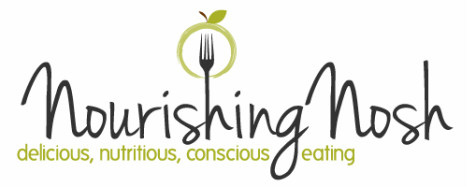
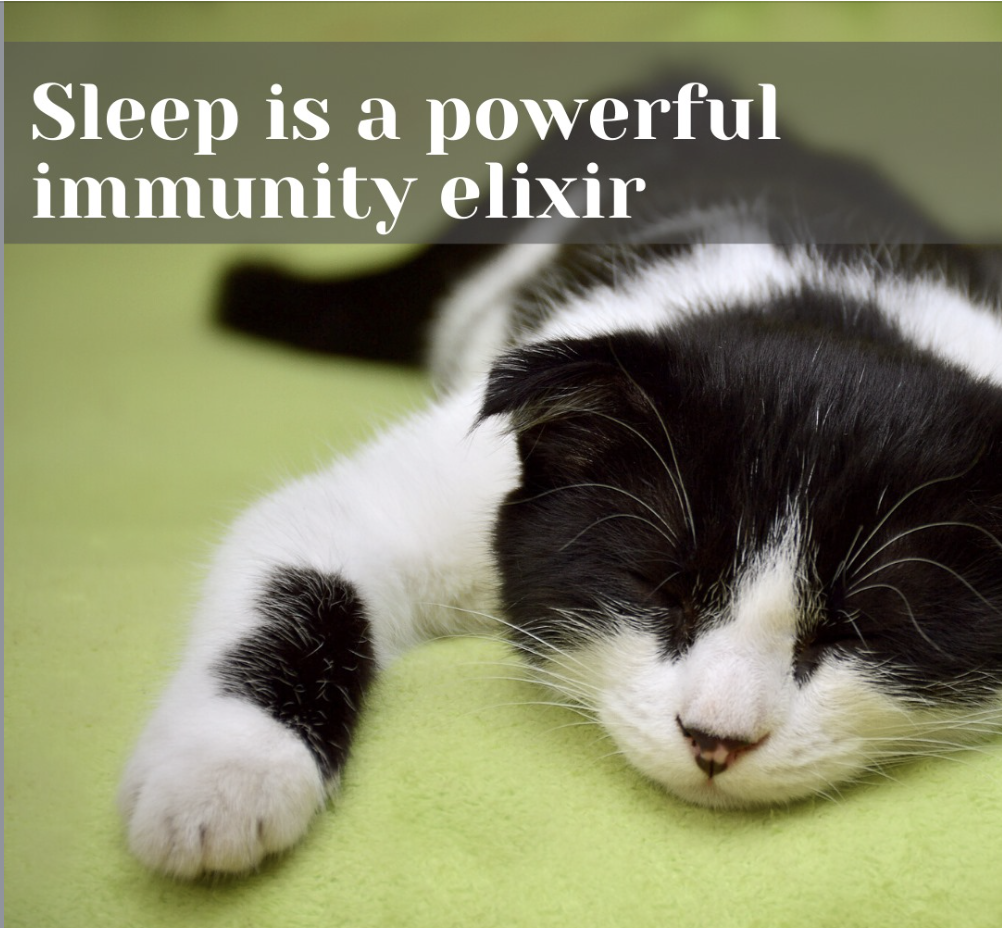
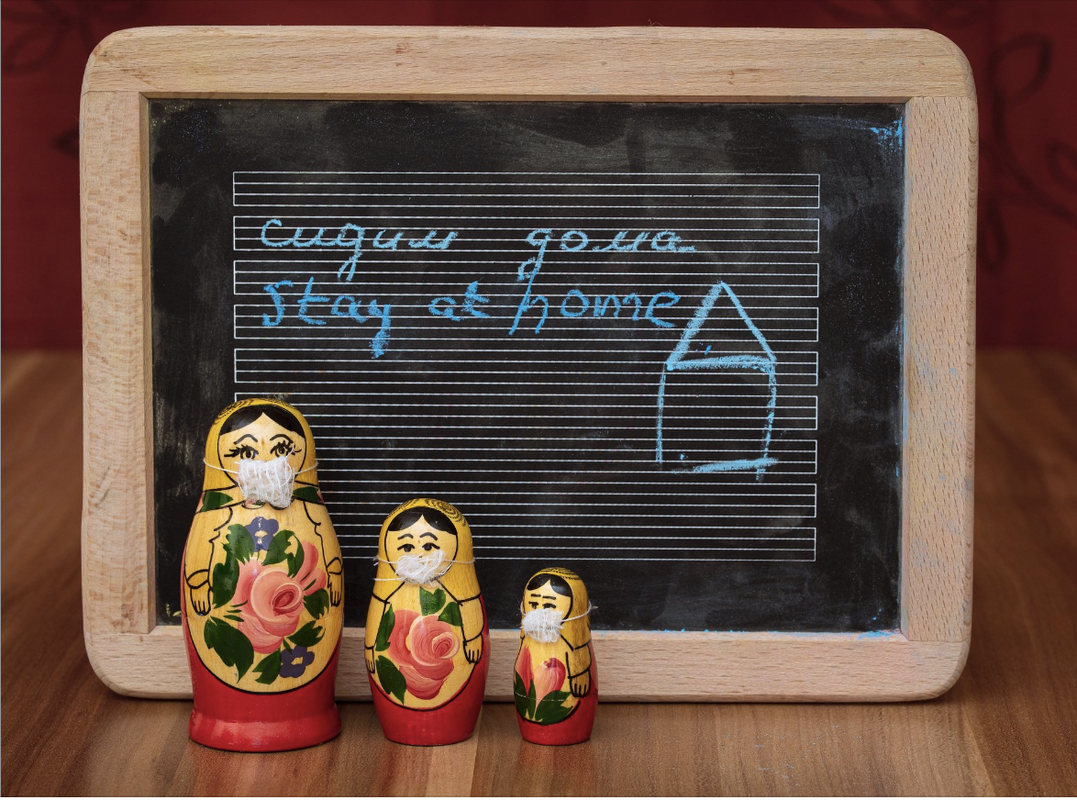
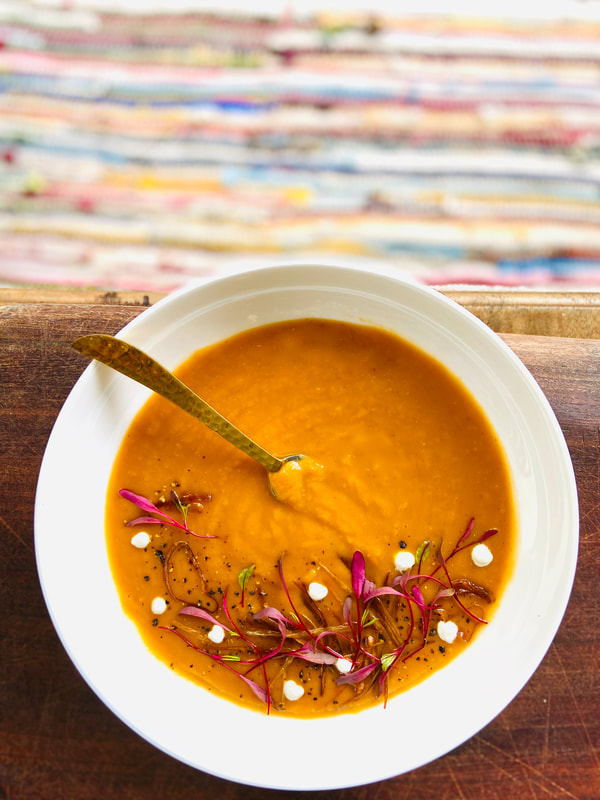
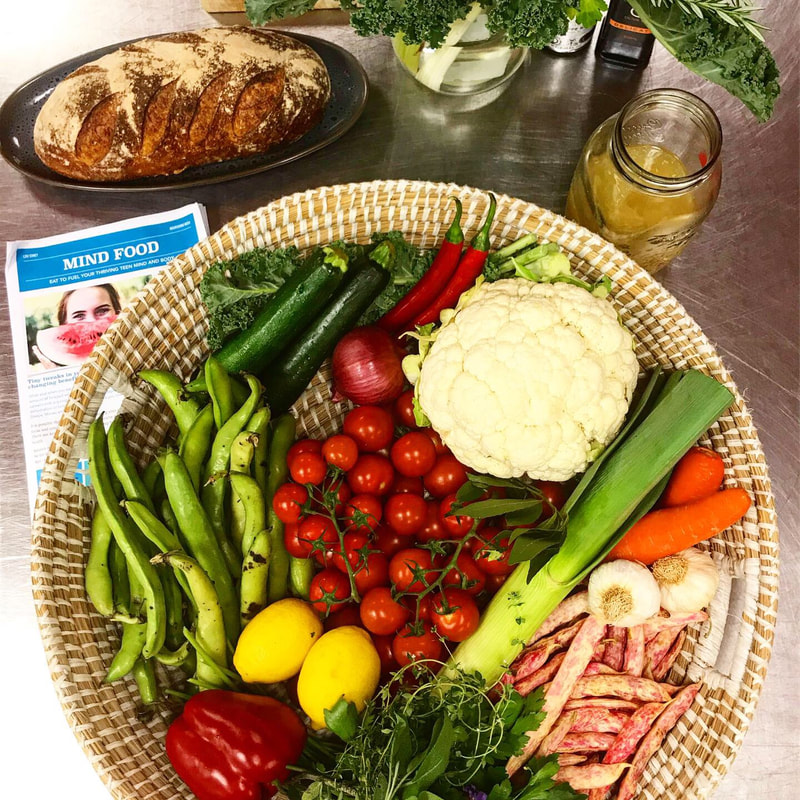
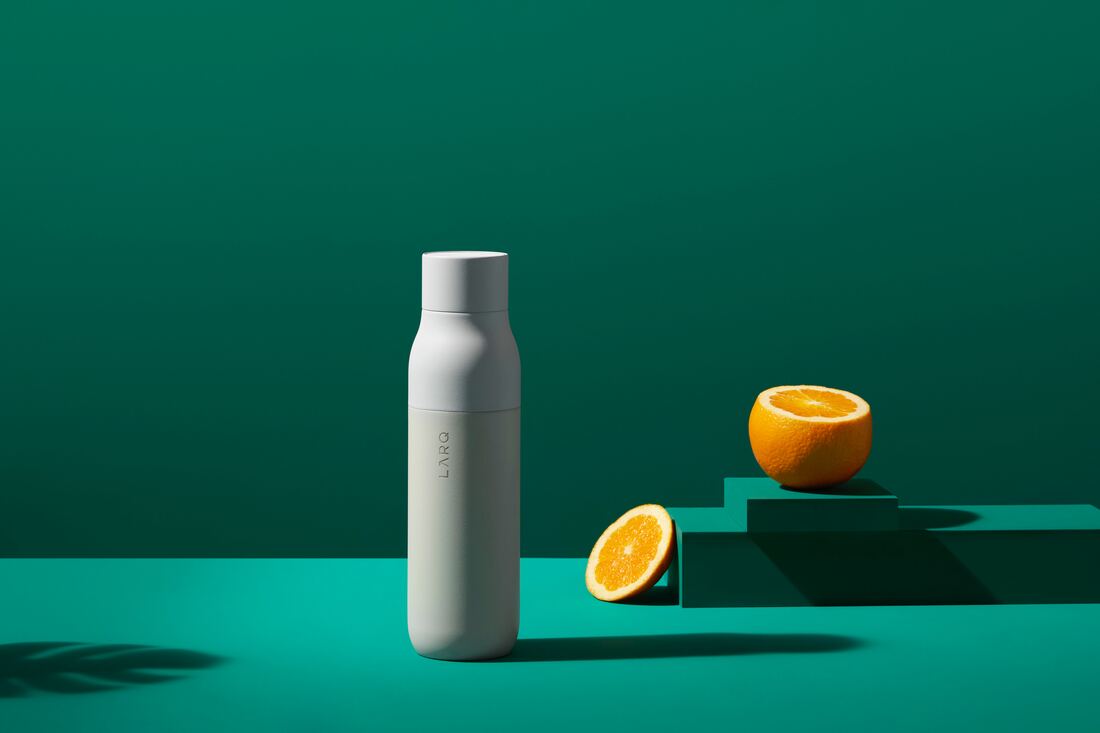
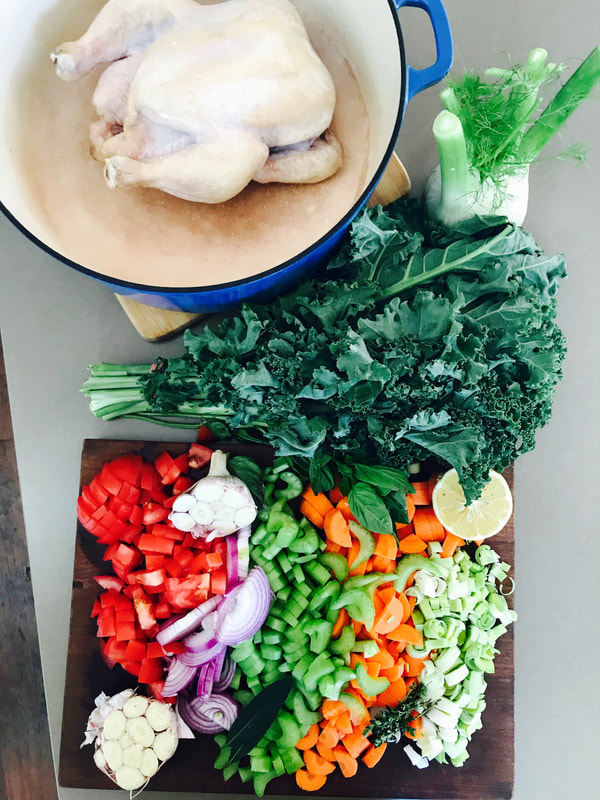


 RSS Feed
RSS Feed